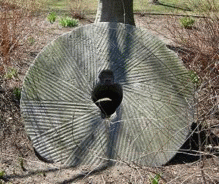Yesterday the world learned of the death of Nigeria’s president, Umaru Yar'Adua. Today, acting President Goodluck Jonathan -- who had been running the nation for months during Yar'Adua's illness -- was sworn in as president.
Those aware of the political and religious tensions in the nation, which recently culminated in horrific incidents of violence between Muslims and Christians (click here for more), have reacted to the news with much trepidation over how this sudden shift could intensify the instability. It is most certainly a time to lift up Nigeria in prayer.
The follow article gives an informative summary of some of the challenges Nigeria faces in light of the recent change in power:
Nigeria's shaky balance of power takes a hit as new president is sworn in
Reporting from Johannesburg, South Africa
Nigeria swore in Goodluck Jonathan as president Thursday after the death of his predecessor, sparking fears of a debilitating power struggle in the ruling party.
Politicians hailed the smooth power transfer, but the death of President Umaru Yar'Adua on Wednesday night after a long illness threw open the possibility of a fierce battle between the northerners and southerners in the ruling People's Democratic Party should Jonathan decide to run for the presidency in elections due next year.
If Jonathan contests, it would shatter an unwritten deal in the PDP, vital to Nigeria's political stability, which rotates the presidency for eight years to a leader from the mainly Christian south and eight years to someone from the mainly Muslim north.
The agreement, known as the "zoning" policy, was recently affirmed by the party and means an Islamic candidate should run as the PDP candidate because Yar'Adua, a Muslim, served less than four years.
But differences over the zoning policy between top ruling party figures underscore the divisions and unfolding battle for power.
Jonathan, a southerner who as vice president has been serving as the country's interim leader in recent months, has made no announcement on whether he intends to run. But some political figures in the ruling party and opposition said Thursday he would lose out on votes in the north, the country's larger voting constituency.
After he was sworn in Thursday, Jonathan said he took office in sad and unusual circumstances and described Yar'Adua as a man of integrity and humility. He declared a week of mourning.
Yar'Adua was due to be buried later Thursday in his northern home city of Katsina, where he presided as governor from 1999 to 2007 before taking office as president.
Yar'Adua's frequent bouts of illness undermined his presidency and prevented him from delivering on pledges to reform Nigeria, attack corruption and implement the rule of law.
He had suffered a kidney ailment since the 1990s. Last November, he flew to Saudi Arabia for medical treatment for pericarditis, inflammation of the sac around the heart. He failed to formally hand over executive powers to Jonathan and was never seen in public again.
The legislature's vote to hand executive powers to Jonathan in February was condemned by some lawyers as unconstitutional – and Yar'Adua's return soon after deepened the political crisis.
Presidential aides were accused of trying to cling to power, with Yar'Adua on his death bed. Jonathan was repeatedly prevented from meeting the president. Yar'Adua never addressed the public, and no clarity on his health was offered before Wednesday's announcement of his death.
PDP Chairman Vincent Ogbulafor said recently the presidency would remain with the north after the 2011 elections, in accordance with the zoning policy.
Nigeria, the world's eight-largest oil exporter and Africa's most populous nation with 150-million people, is almost equally divided between northern Muslims and southern Christians.
Since independence in 1960, the volatile and ethnically diverse nation has suffered chronic bouts of ill governance, whether by military or civilian rulers. Billions of dollars in oil wealth have been stolen or squandered by the corrupt political elite.
Yar'Adua was widely seen as a man of integrity and honesty. He came to office promising reform, but he lacked the political strength to counter widespread corruption.
In recent years, the country has been wracked by violence in the volatile oil-producing Niger Delta, with attacks on oil facilities and kidnappings by rebel groups demanding independence for the region. Yar'Adua, determined to increase flagging oil exports, succeeded in establishing a shaky peace in the region by introducing an amnesty for rebels, many of whom surrendered arms.
But there were other flare-ups, with renewed ethnic and religious violence in Plateau state, central Nigeria, that left hundreds dead in the last few months.
And in July last year, security forces violently crushed a rebellion in the north by an extremist Islamic group that calls itself Nigeria's Taliban. The group's leader and numerous others were apparently executed in captivity by security forces, undermining Yar'Adua's mantra of respect for the rule of law. On March 19, police were charged in the killings.













 Maryam and Marzieh were arrested on March 5, their apartment was searched, and their belongings confiscated. It appears that their only "crime" is their steadfast commitment to Christ.
Maryam and Marzieh were arrested on March 5, their apartment was searched, and their belongings confiscated. It appears that their only "crime" is their steadfast commitment to Christ. 